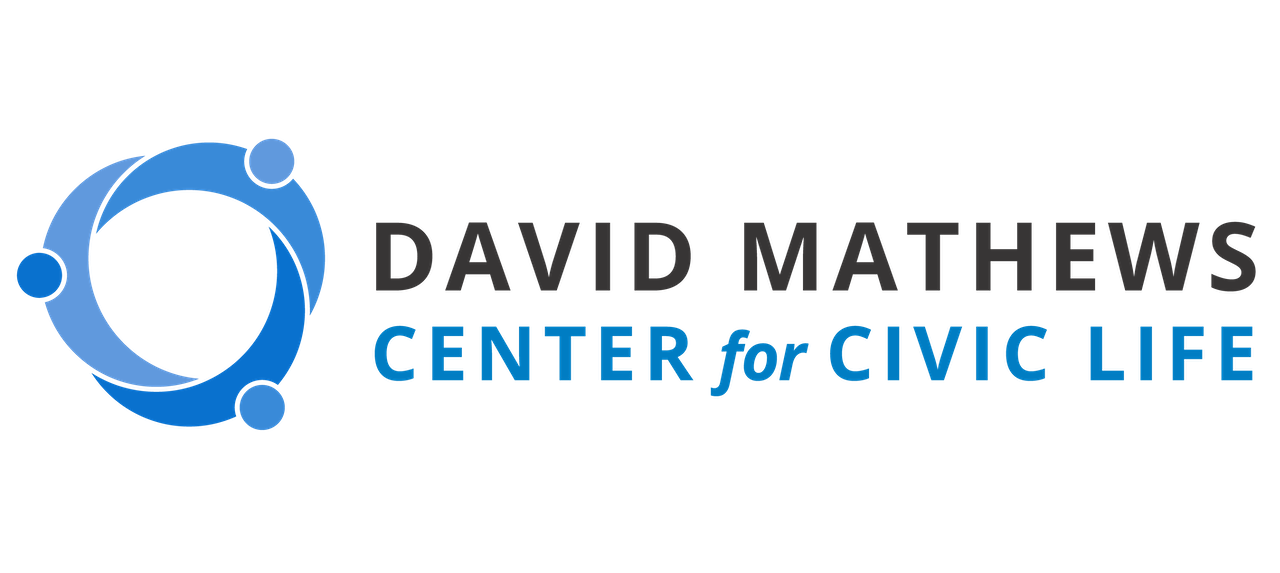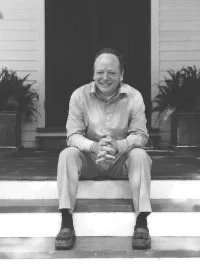
Wilson Named 2020 Jean O'Connor-Snyder Award Recipient
The David Mathews Center for Civic Life is pleased to announce Dr. Mark Wilson as the recipient of the David Mathews Center for Civic Life’s 2020 Jean O’Connor-Snyder Award. Dr. Wilson is a longtime partner of the Mathews Center and the longest-serving Jean O’Connor-Snyder Internship Program faculty mentor.
The Jean O’Connor-Snyder Award annually recognizes an Alabama community leader who has empowered others in the spirit of Jean O’Connor-Snyder. Award winners are epitomized by their unique ability to uncover the potential in others. Jean O’Connor-Snyder Award recipients demonstrate a commitment to finding the worth in everyone and empowering others to use their talents to improve their communities.

2020 Innovators in Civic Education Fellows
The DMC hosted its second annual Innovators in Civic Education Teacher Fellows workshop on July 23 and 24. Teacher Fellows assist the DMC in educational programming by providing valuable insight on how to create the most relevant and useful resources for educators, both in the classroom and the community.
This year, our Fellows met remotely to receive training on a variety of civic education methods and programs. DMC Education Director Gabrielle Lamplugh explored the pedagogy of deliberation, former JOIP intern and Montevallo Junior City Council member Samuel Reece spoke on the role of student-led government in communities, DMC staff contributor Jessica Holdnak discussed the ins-and-outs of crafting historic and contemporary issue guides, and Dr. John Giggie shared how he incorporates place-based learning through “History of Us,” an African American History course at the University of Alabama.
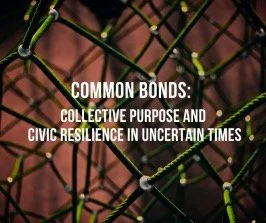
Common Bonds: Collective Purpose and Civic Resilience in Uncertain Times
The Mathews Center will host its annual Civic Institute on August 21st, 2020. The event will be held entirely online. The theme of this year's event is Common Bonds: Collective Purpose and Civic Resilience in Uncertain Times.

Stories for Civic Skill Building: Our Favorite Books
For the last few weeks, we’ve been focusing on different ways to use stories as a tool for civic skill-building. I hope the blogs about music and film offered a few helpful resources for using stories to encourage empathy, perspective-taking, and global awareness. Today, I will be sharing some of the DMC staff’s favorite books for civic skill building.
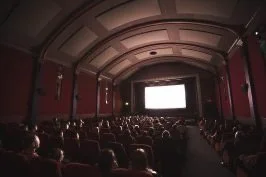
Stories for Civic Skill Building: Films for Fresh Perspective
Like most of the world, I’ve spent a lot more time using streaming services recently. The other night I surprised myself by binging four straight hours of the Smithsonian Channels “America in Color.” It got me thinking about the often-overlooked potential of film and media in the classroom.Not only can film communicate content knowledge, but it can also be a tool for cultivating important civic skills like empathy, global awareness, and perspective-taking.
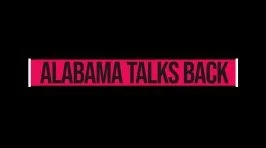
Alabama Talks Back: Public Health & Social Isolation
In this first installment of Alabama Talks Back, we explore the connection between public health and social isolation. Our guests are Kristin Boggs, Executive Director of the Albert Schweitzer Fellowship, and Carson Klein, graduating medical student (UAB '20) and Schweitzer Fellow!

Exploring Our Unconventional Oasis: Montevallo Students' Institute
In the unconventional oasis of Montevallo, there is a broad range of educational opportunities. From Pre-K to a master’s degree, you can achieve a quality education at an affordable price. With this opportunity, the city hopes that young people in the education system would be willing to voice their opinion on how to better the city. The town receives opinions from University students, but not the youth of the city. This is where the Montevallo Students’ Institute is essential in uplifting youth voices and making an impact on the community.

Stories for Civic Skill Building: Music
Nearly as old as humankind, music is one excellent storytelling teaching tool. And, more than any other form of storytelling, music has a unique power to evoke feeling. When we listen to music our brains “light up,” triggering responses from the parts of our brain that are associated with movement, planning, attention, and memory.
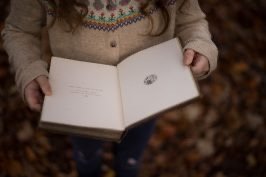
Using Stories as a tool for Civic Skill Building
In social studies and specifically, civics, a students’ proficiency is often determined by whether they know “the facts”: the signers of the Declaration of Independence, the Bill of Rights, how a bill becomes a law. It is certainly important for students to study this information. After all, studying history helps us make informed decisions about our future. But, if we compartmentalize mastering civics and social studies to memorizing timelines, historical figures, or facts, we are missing out on the opportunity we have to prepare students for active citizenship.
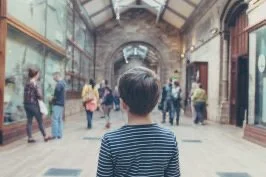
Bringing the Museum Home: Online Learning Exhibits
The David Mathews Center offers issue guides for classroom discussion on historical events in Alabama history, including the Creek War, women’s suffrage, and the Civil Rights movement. While the issue guides are an excellent starting point for discussing the difficult choices citizens made during these events, here are a few resources for taking your learning even farther.

New Video Series: "Alabama Talks Back"
Our new video series, Alabama Talks Back, highlights the creative strategies being developed by community leaders and everyday Alabamians as they adapt to the challenges that come with social distancing.

From the Magna Carta to the Modern Day: Teaching Active Citizenship
In the times when our communities are faced with the toughest challenges, there emerge powerful examples of what it means to be a good community member and active citizen.
As Fred Rogers once said, “When I was a boy and I would see scary things in the news, my mother would say to me, ‘Look for the helpers. You will always find people who are helping.’” Every generation has its moment of civic maturation - where young people not only observe but begin to contribute to the acts of service and partnership that emerge in a crisis. During these times young people learn by example and through action what it means to be a good neighbor.
Sometimes, however, wanting to make a difference can be overwhelming. It’s hard to know where to start. Below are a few resources that can help students better understand what it means to be an active citizen - both in the historical context as well as day to day in their community.

Public Life in the Time of Coronavirus
This is a scary time for all of us. It’s a time requiring us to make drastic changes to our lives. In addition to taking extra health and safety precautions, we’re being asked not to gather face-to-face for a while, to practice social distancing to “flatten the curve” and protect our most vulnerable neighbors. Here are some ideas for staying connected in a time of social distancing.

Teaching Civic Skills: Media Literacy Resources
With an ever-increasing number of sources to gather information from, how can we be confident that the sources we read are trustworthy and the information that they provide is reliable and accurate? When we ask ourselves this question, what we are asking about is media literacy.

UPDATE: Announcing the Departure of Executive Director Cristin F. Brawner
UPDATE: In light of COVID-19, the DMC is temporarily suspending the search for a new Executive Director.
Cristin Brawner has agreed to remain in the position until the search can be resumed and completed.
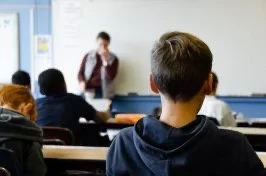
Call for Proposals: 2020-21 Innovators in Civic Education Fellowship
The David Mathews Center for Civic Life’s (DMC) Innovators in Civic Education Fellowship provides classroom and community-based educators with the resources and training they need to bring high-quality, civics-forward social studies education to their classroom.
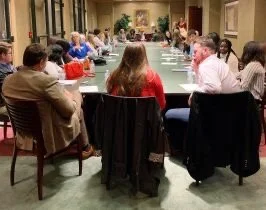
2020-21 JOIP Request for Proposals
The David Mathews Center for Civic Life is pleased to announce our Jean O’Connor-Snyder Internship Call for Proposals for the 2020-21 academic year!
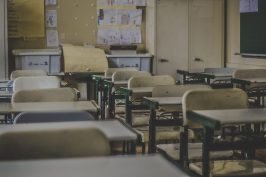
Learning by Belonging: Active Citizenship & Place-Based Education
“They are a product of their upbringing" only tells us part of the story. Once we look deeper, however, a more profound meaning of this cliché comes to light.
